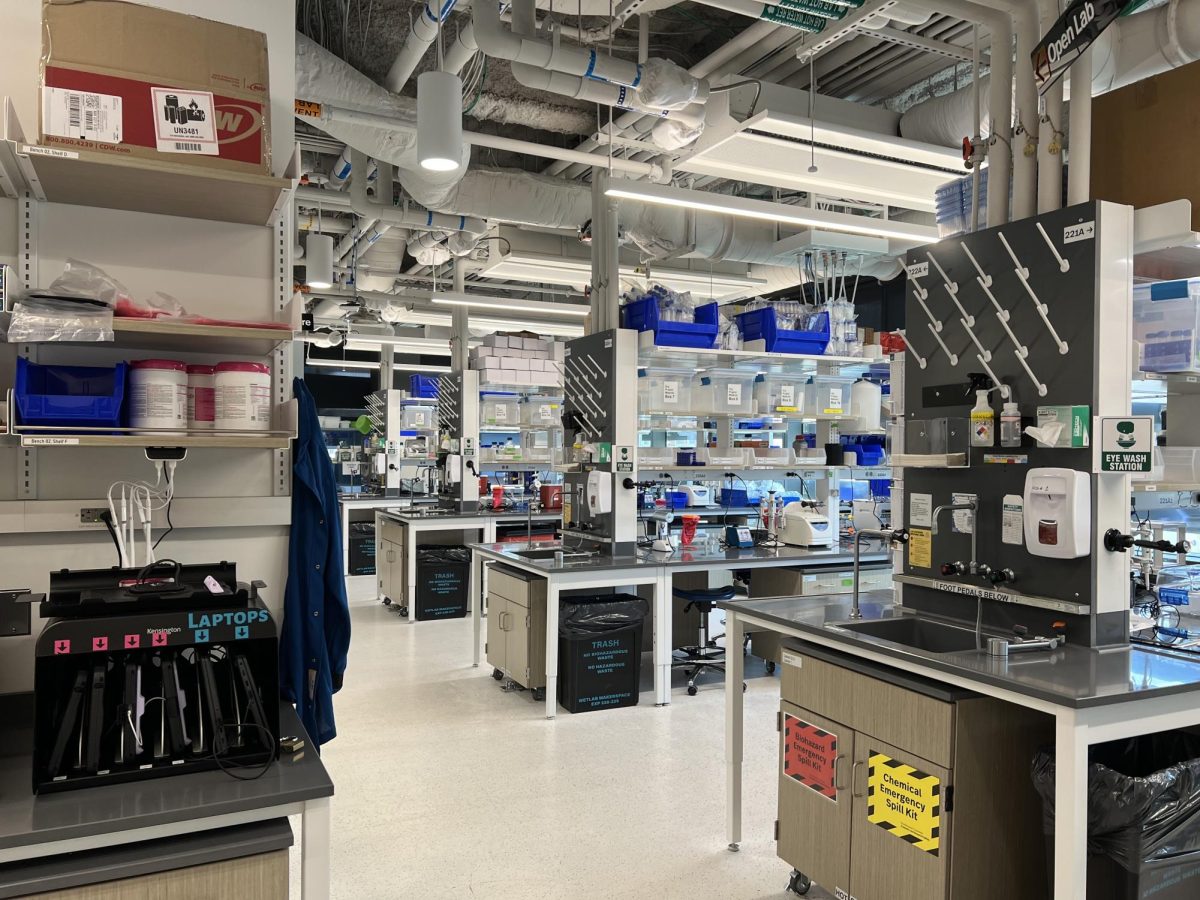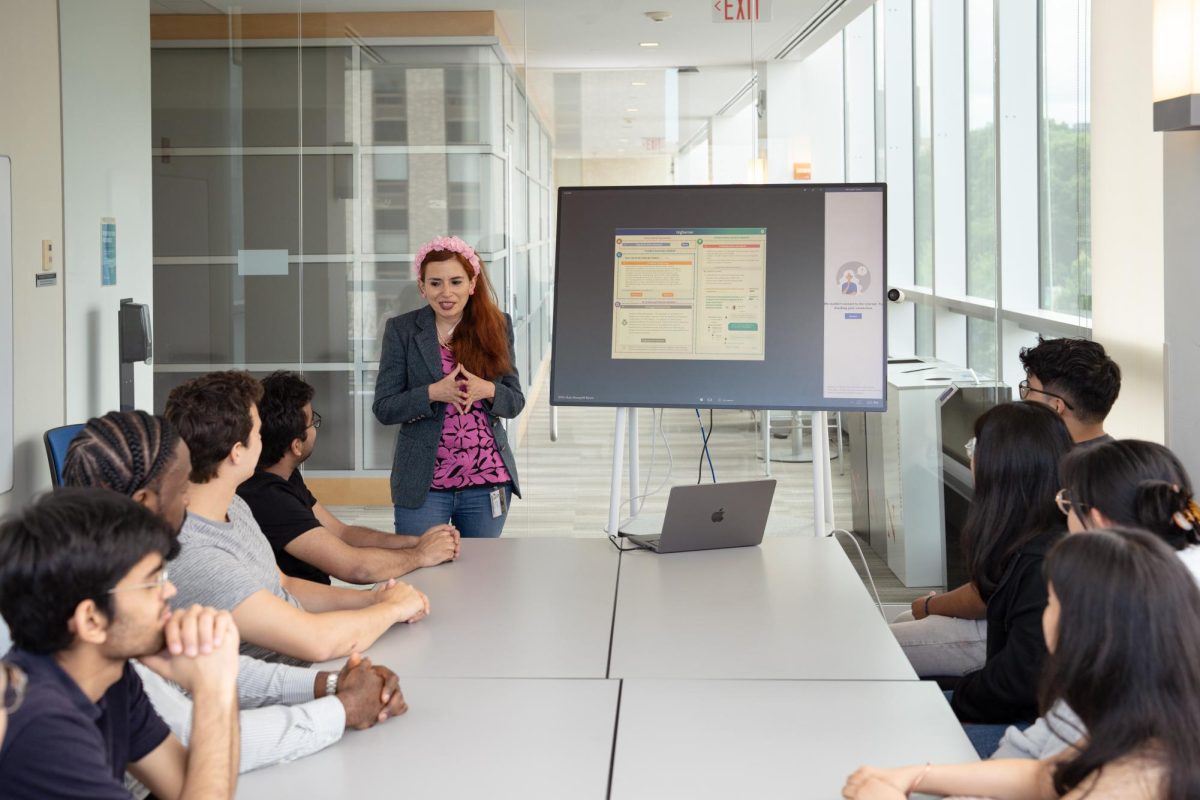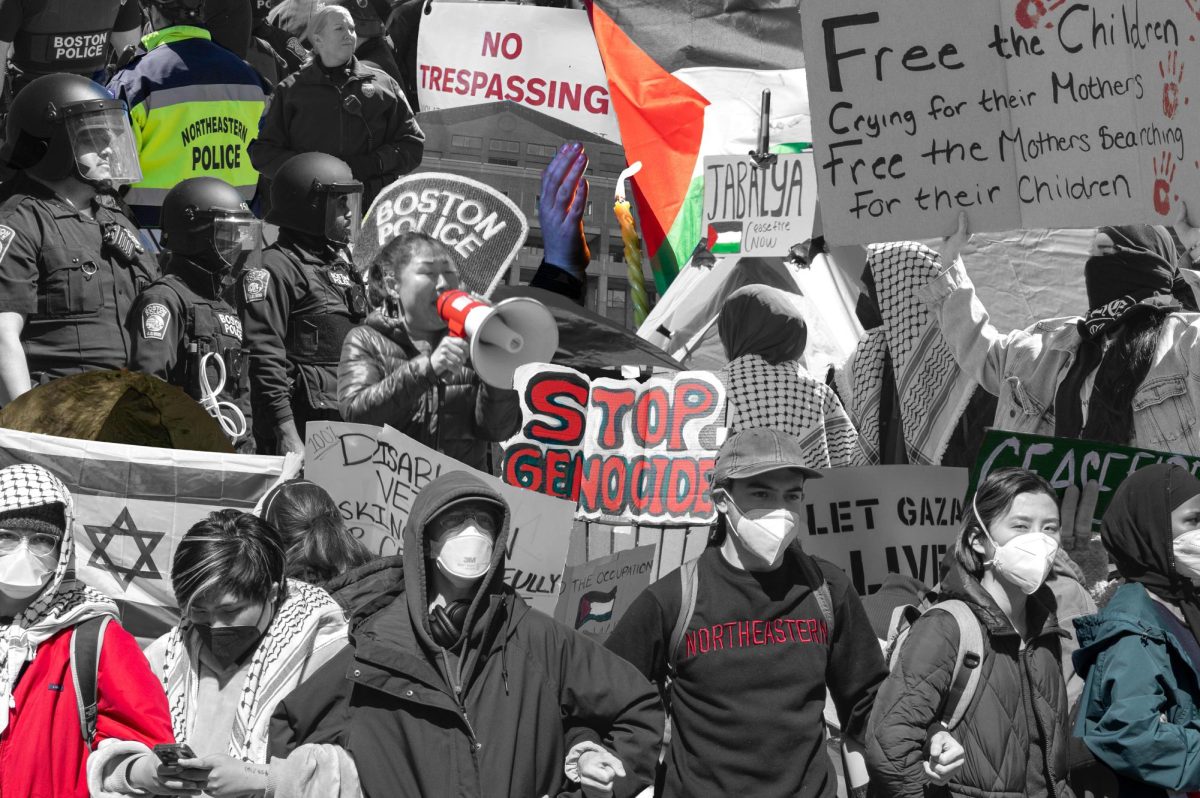By Brendan Reilly
The Ford Hall Forum continued its fall 2002 public lecture/discussion series Tuesday night. This time it tackled the controversial topic of same-sex couples and their right to be legally married.
Residents from various communities throughout Massachusetts gathered at the Old South Meeting House in downtown Boston to listen to each other’s stories and voice their opinions.
The Gay ‘ Lesbian Advocates ‘ Defenders (GLAD) have brought a lawsuit against the Massachusetts State Department of Public Health for not allowing same-sex couples to be legally married. They are currently awaiting a hearing date in the State Supreme Court. Tuesday night three of the couples represented in the suit shared their experiences with the audience.
“I don’t see why this is such a big deal,” said Julie Goodridge as tears streamed down her face. “We just want to get married.”
Julie and her partner of 17 years, Hillary, have made vows to each other in a commitment ceremony. They have legally changed their names to further signify their union. They live together and have a daughter, but they are not legally married.
“Legally, we are barred from living up to the vows we made to each other,” Julie said.
Julie and Hillary did apply for a marriage license, as did the other two couples who spoke to the audience at the forum, and all were denied.
“We walked in and said we wanted to apply for a marriage license and they asked us where the grooms were,” Julie said.
The moderator of the forum and Civil Rights Project Director for GLAD Mary Bonauto made point by point arguments against each reason the state has offered in denying same-sex couples the right to legally marry.
Bonauto, a graduate of the Northeastern School of Law, said that the state argues that the purpose of marriage is procreation. However, she says heterosexual couples who are unable to have children are not barred from marriage.
“The state does not license procreation, it licenses marriage,” she said.
The next point Bonauto touched on is what she said even the state knows is a weak argument: conservation of fiscal resources. Here, she argues that couples who support each other would rely even less on the state for financial assistance than if they were forced to remain unmarried.
Gina Smith and Heidi Norton share the same concerns that many other couples have. The basic rights that married couples have and the denial of those rights to same-sex couples raises a number of uncertainties.
When Norton gave birth to their first child, complications resulted in a return trip to the emergency room. Heavy hemorrhaging put Norton’s life in jeopardy. Since Smith had not yet completed adoption papers to become a legal guardian of their child, she was faced with the possibility of two great losses. Not only was she in risk of losing the woman she shared nearly two decades of her life with, but she also feared that if the worst happened with Norton, she may also have their child taken from her.
According to Norton, a few years later, the couple was putting their second child to bed when the phone rang and an anonymous caller berated them with hate speech on their answering machine. Their oldest son, who was only a few years old at the time, was nearby the phone and heard every word said.
Ed Balmelli and Michael Horgan, a same-sex couple who own a home together in Jamaica Plain, agree that one of the obstacles in the way of gay and lesbian marriages is that many people do not know them. All three couples say their neighbors and families have supported them at every step along the way.
“Our families recognize us as a married couple and as one big family,” Julie Goodridge said. “Why can’t the state give us that same recognition?”








